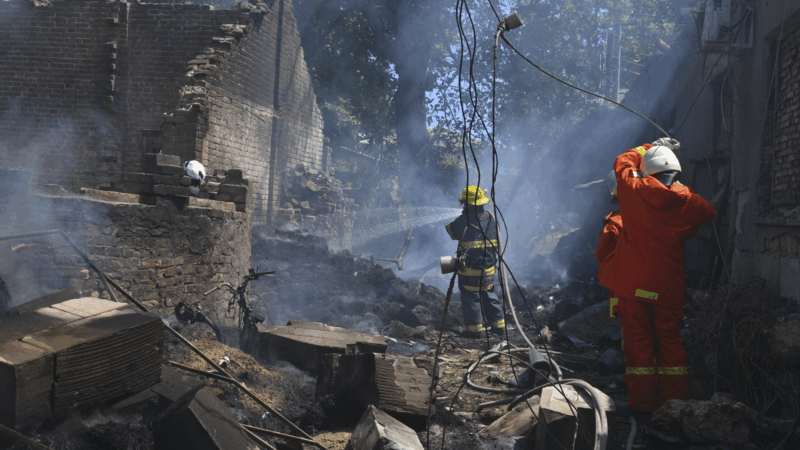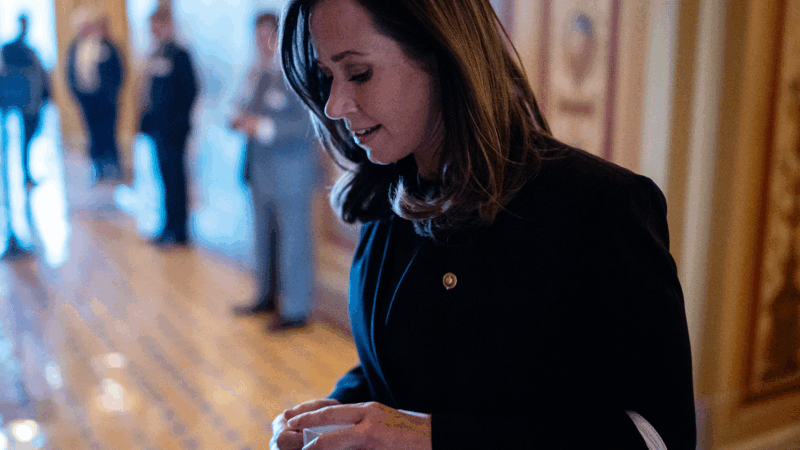Kremlin watches Trump as Russia and Ukraine hold a third round of ceasefire talks
MOSCOW and KYIV — Russia and Ukraine are set to meet for a third round of ceasefire talks in Istanbul this week, amid recent new threats by President Trump to levy harsh new economic penalties on Moscow should it fail to agree to a peace deal by early September.
The latest talks could be an early litmus test on how seriously Moscow perceives Trump’s threats — and how Russia might respond.
Ukrainian President Volodymyr Zelenskyy initiated this latest round of talks with a public challenge for Russia to speed up negotiations. This is the third in a series of meetings that have resulted in several mass prisoner exchanges but made little, if any, progress towards stopping the fighting.
“Everything should be done to achieve a ceasefire,” Zelenskyy said in an evening address to the nation on Tuesday. “The Russian side should stop hiding from decisions.”
Zelenskyy said Kyiv’s priorities remained primarily humanitarian — including the return of prisoners and thousands of Ukrainian children abducted by Russian forces, even as he called for direct talks with Russian President Vladimir Putin aimed at ending the conflict.
“A meeting at the leadership level is needed to truly ensure peace — lasting peace,” he said.
Yet there were few signs Russia would engage the offer.
The Kremlin has repeatedly brushed off the possibility of direct talks between Putin and Zelenskyy, with Kremlin spokesman Dmitry Peskov telling reporters Tuesday that “a lot of work to be done before we can talk about the possibility of some top-level meetings.”
Peskov also downplayed the prospect of a ceasefire, noting Moscow and Kyiv remained “diametrically opposed” in their positions to end the war.
“There is no reason to expect any breakthroughs in the category of miracles — it is hardly possible in the current situation,” Peskov said.
“We intend to pursue our interests, we intend to ensure our interests and fulfil the tasks that we set for ourselves from the very beginning.”
Core Russian demands include an end to Ukraine’s ambitions to join the NATO alliance, a neutered Ukrainian military and a formal ceding of Ukrainian territory claimed but not fully controlled by the Russian military.
The latest negotiations come as Trump has grown increasingly frustrated with Russia, and Putin in particular, over continued Russian drone and missile attacks on Ukrainian cities amid U.S. efforts to negotiate a ceasefire.
Speaking to reporters earlier this month, Trump said Putin had “surprised a lot of people.”
“He talks nice and then he bombs everybody in the evening,” Trump said.
In what appeared to be a major shift in U.S. policy, Trump last week endorsed the sales of U.S. weapons to Ukraine — with the caveat that European NATO allies would now purchase American weapons in full before sending them to Kyiv.
Trump also threatened additional “severe” economic penalties on Russia if Moscow doesn’t agree to some form of a peace deal “in fifty days” — in effect an early September deadline.
Yet, State Department spokesperson Tammy Bruce suggested that timeframe depended on how Trump saw peace efforts unfolding.
“I would caution when the president notes a block of time or a window that it could be any time in that window,” Bruce said in a briefing with reporters on Tuesday.
“If there’s a genuine negotiation happening and it’s in motion, then things can change rapidly,” she added. “So it’s never static for most of us.”
Thus far, Russia has reacted cautiously to Trump’s pressure.
The Kremlin has called Trump’s threats “very serious” but said Moscow required time to “analyze” his positions. Putin has yet to comment publicly on the matter.
Moscow-based analysts suggest the Kremlin has little appetite to antagonize Trump, aware that Trump’s frustrations with Russia today may be aimed back at Ukraine tomorrow.
“First of all, we know his style already — not everything he says will be implemented,” said Fyodor Lukyanov, editor of Russia in Global Affairs magazine and an occasional adviser to the Kremlin, in an interview with NPR.
Either way, Lukyanov added, the prevailing view among Russia’s political elite was that U.S. support will not be at the level it was earlier in the war.
“The conclusion is the level of military and materiel support from U.S. to Ukraine will not reach the level as it was during the Biden administration,” he said.
“And if so,” he said, “it cannot seriously change the equation on the battlefield.”
Bill making the Public Service Commission an appointed board is dead for the session
Usually when discussing legislative action, the focus is on what's moving forward. But plenty of bills in a legislature stall or even die. Leaders in the Alabama legislature say a bill involving the Public Service Commission is dead for the session. We get details on that from Todd Stacy, host of Capitol Journal on Alabama Public Television.
Baz Luhrmann will make you fall in love with Elvis Presley
The new movie is made up of footage originally shot in the early 1970s, which Luhrmann found in storage in a Kansas salt mine.
My doctor keeps focusing on my weight. What other health metrics matter more?
Our Real Talk with a Doc columnist explains how to push back if your doctor's obsessed with weight loss. And what other health metrics matter more instead.
Forget the State of the Union. What’s the state of your quiz score?
What's the state of your union, quiz-wise? Find out!
A team of midlife cheerleaders in Ukraine refuses to let war defeat them
Ukrainian women in their 50s and 60s say they've embraced cheerleading as a way to cope with the extreme stress and anxiety of four years of Russia's full-scale invasion.
SNL mocked her as a ‘scary mom.’ In the Senate, Katie Britt is an emerging dealmaker
Sen. Katie Britt, Republican of Alabama, is a budding bipartisan dealmaker. Her latest assignment: helping negotiate changes to immigration enforcement tactics.








